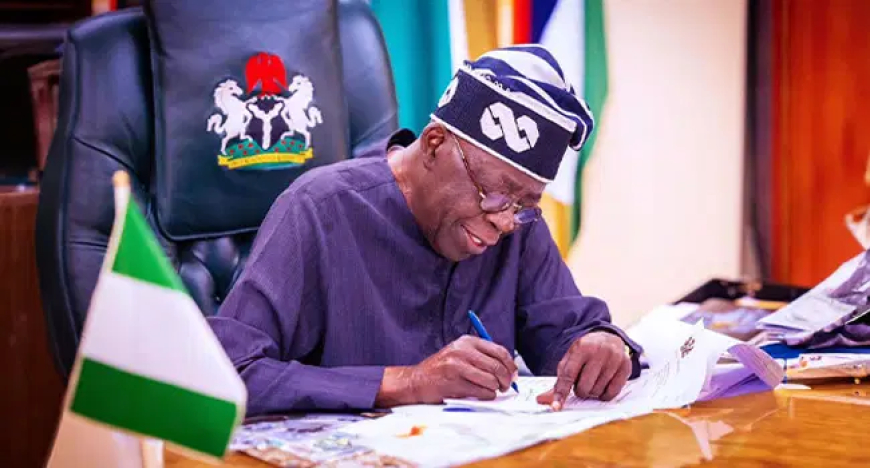Tinubu approves 15% fuel, diesel import tariff

President Bola Tinubu has given the green light for the implementation of a 15 per cent ad-valorem import duty on petrol and diesel brought into Nigeria — a move expected to protect domestic refineries and promote stability in the downstream oil sector.
In a directive dated October 21, 2025 — made public on Wednesday — Tinubu ordered the Federal Inland Revenue Service (FIRS) and the Nigerian Midstream and Downstream Petroleum Regulatory Authority (NMDPRA) to immediately begin enforcing the tariff. The decision, according to the government, forms part of a new “market-responsive import tariff framework.”
The letter, signed by the president’s private secretary, Damilotun Aderemi, confirmed Tinubu’s approval of a proposal submitted by FIRS Chairman Zacch Adedeji. The plan recommends a 15 per cent duty on the cost, insurance, and freight (CIF) value of imported petrol and diesel to reflect true market conditions and encourage local production.
Adedeji explained in his memo that the initiative was designed to support Nigeria’s “Renewed Hope Agenda” for energy security and economic stability.
“The core objective of this initiative is to operationalise crude transactions in local currency, strengthen local refining capacity, and ensure a stable, affordable supply of petroleum products across Nigeria,” Adedeji stated.
The FIRS boss cautioned that the disparity between locally refined fuel prices and import parity benchmarks has fueled market volatility.
“While domestic refining of petrol has begun to increase and diesel sufficiency has been achieved, price instability persists, partly due to the misalignment between local refiners and marketers,” he wrote.
Adedeji pointed out that import parity pricing often falls below cost recovery levels for domestic refiners, especially amid foreign exchange and freight fluctuations — a situation that threatens the viability of emerging local producers.
He added that the government now faces a “twofold” responsibility “to protect consumers and domestic producers from unfair pricing practices and collusion, while ensuring a level playing field for refiners to recover costs and attract investments.”
According to him, the new tariff system will prevent duty-free fuel imports from undermining local refineries and promote a fair, competitive downstream sector.
Projections included in the presidential approval note indicate that the 15 per cent import duty could raise the landing cost of petrol by about ₦99.72 per litre.
At current CIF levels, this represents an increment of approximately 99.72 per litre, which nudges imported landed costs toward local cost-recovery without choking supply or inflating consumer prices beyond sustainable thresholds. Even with this adjustment, estimated Lagos pump prices would remain in the range of N964.72 per litre ($0.62), still significantly below regional averages such as Senegal ($1.76 per litre), Cote d’Ivoire ($1.52 per litre), and Ghana ($1.37 per litre),” the letter read.
The decision aligns with Nigeria’s broader efforts to cut reliance on imported petroleum products and increase domestic refining output.
The 650,000-barrels-per-day Dangote Refinery in Lagos has begun producing diesel and aviation fuel, while modular refineries in Edo, Rivers, and Imo states are conducting small-scale petrol refining.
Despite these developments, imported petrol still meets around 67 per cent of Nigeria’s total consumption.
culled from vanguard

 admin
admin 


